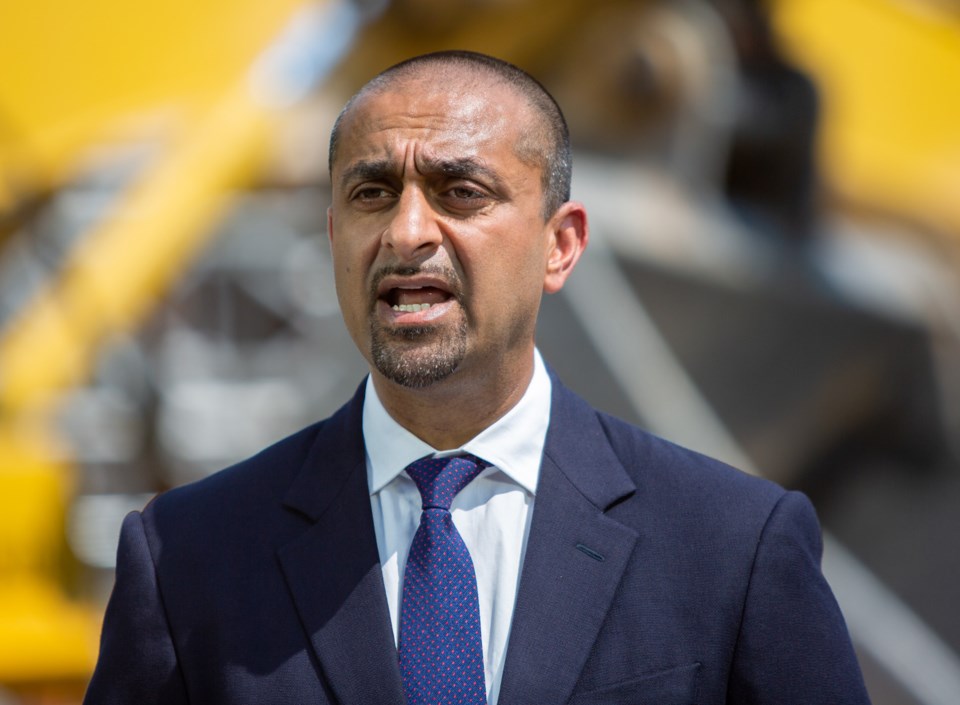It’s hard to tell if the BC NDP government’s new short-term rental legislation is deeply nuanced or deeply flawed.
But the changes the province introduced Monday are definitely deep — page upon page of intricately-detailed requirements, declarations, verifications, applications, licences and processes people will soon need to follow if they want to list a property for short-term rental on a platform like AirBnB or VRBO.
At first blush, it feels like an awful lot of new red tape. But then again, it’s in an area that could clearly use some provincial intervention, after a 20-per-cent jump in short-term rental listings in the last year, and a 40- to 50-per-cent non-compliance rate among operators in the 15 B.C. municipalities that have already tried to regulate the sector.
“Those of you that are renting out dozens of short-term rentals to make a huge profit, while taking away homes for people, you should probably be thinking about a new profit scheme in the very near future,” said Housing Minister Ravi Kahlon.
The goal is to severely restrict — or in some cases outright ban — the ability for most investors to rent multiple houses, condos or apartments on AirBnB, VRBO, Expedia and other sites. There are currently 28,000 such listings in the province.
“Our hope is that short-term rental operators either convert to long-term operators or put their homes up for sale so that British Coluimbians have a shot at buying them,” said Premier David Eby.
The government could have put in a province-wide short-term rental policy. Instead, it has contorted its legislation to give different options to urban centres, rural regional districts, tourism-dependent communities and small towns located near large cities.
Perhaps time will show this is the right approach. However, it does also run the risk of creating a convoluted, patchwork system of rules that change repeatedly as you drive virtually anywhere outside of Metro Vancouver or Greater Victoria.
The core of the legislation is to limit short-term rentals only to people’s principal residences. That would effectively ban people who own multiple properties from listing more than one on AirBnB.
But it only applies to cities with more than 10,000 people. Those with rental vacancy rates of more than three per cent can opt out (already seven municipalities qualify to do so). Regional districts aren’t required to participate. Fourteen tourism-dependent regions, like Whistler and Tofino, can continue to allow investors with multiple properties. The Gulf Islands aren’t included. And so on.
The government argues exempt areas can opt in later, voluntarily. A new provincial registration system will give every city and town a chance to see how many short-term rental properties are operating locally, whether they choose to regulate them or not.
But many smaller areas lack the staff and expertise necessary to navigate what is a contentious issue. They will continue to be stuck inside the torturous quagmire of short-term rentals needed for tourists because there aren’t enough hotels, versus those short-term rentals also eating up desperately-needed long-term rental housing for local workers and residents.
To top off the confusion, municipalities will also be allowed to bring in harsher rules if they are so inclined. Vancouver is expected to do just that, meaning even within urban cores there will be different requirements on how and what can be rented on AirBnB, such as laneway houses.
The concern is that with such a convoluted regime for people to navigate, investors with multiple properties will just start using other platforms to offer vacation rentals and bypass the government’s whole new regime entirely.
Facebook Marketplace seems the most likely site to flourish, but undoubtedly crafty tech companies will help cultivate other alternatives.
That’s not even touching upon the thorny issue of what constitutes your principal residence. A quick online search shows all sorts of B.C. law firms eager to advise people on the best way to use paper declarations, child status and other tricks to help cook your principal residence location to whatever best suits your financial needs or tax purposes.
The premier promised a new compliance and enforcement unit by 2024 to sort this all out. He’d better be prepared to give it a huge staff of detectives and a large budget. Because while the NDP government may think it has created a flexible new regime on short-term rentals, actually implementing this convoluted mess of policies in the real world, and then effectively enforcing it, is going to be an immense ongoing challenge.
Rob Shaw has spent more than 15 years covering B.C. politics, now reporting for CHEK News and writing for Glacier Media. He is the co-author of the national bestselling book A Matter of Confidence, host of the weekly podcast Political Capital, and a regular guest on CBC Radio. [email protected]





